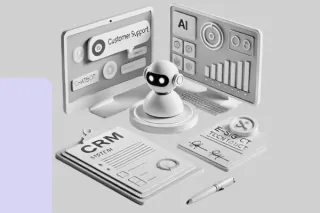In an significantly competitive market, organizations are continually seeking approaches to enhance effectiveness and push productivity. Synthetic intelligence (AI) has appeared as a transformative power, reshaping company operations across various sectors. By automating schedule responsibilities, giving actionable ideas, and optimizing decision-making operations, ai automation agency agencies to use more efficiently than ever before.

One of the very significant features of AI in business operations is automation. Several repeated jobs, such as for instance knowledge entry, account processing, and client inquiries, can be effortlessly treated by AI-driven systems. This not just reduces enough time workers invest in routine actions but in addition reduces the chance of individual error. By reallocating human resources to more proper functions, organizations may foster advancement and increase overall productivity.
In addition to automation, AI promotes decision-making through knowledge analytics. Contemporary organizations make vast amounts of information, and examining this information can be daunting. AI methods can quickly sift through complex datasets to recognize tendencies, designs, and anomalies. This helps businesses to produce informed choices centered on real-time ideas as opposed to relying on intuition alone. As an example, in present chain management, AI may predict need variations, enabling organizations to adjust stock degrees proactively and reduce costs.
Furthermore, AI-driven customer care options are revolutionizing how organizations communicate with their clients. Chatbots and virtual personnel can handle a substantial level of inquiries across the clock, ensuring that consumers get appropriate responses. That not merely increases customer satisfaction but additionally allows human agents to focus on more complex problems that require customized attention. The effect is really a more efficient function that enhances the customer experience while optimizing resource allocation.
AI can also be instrumental in facilitating predictive maintenance in production and company industries. By applying receptors and information analytics, agencies can check gear wellness and anticipate problems before they occur. This proactive strategy minimizes downtime, decreases maintenance fees, and stretches the life of assets. Companies that follow AI for preservation strategies often find themselves functioning at larger efficiency levels, with fewer disruptions to creation processes.
Additionally, the integration of AI into challenge management resources is helping teams collaborate more effectively. AI may analyze challenge timelines, source allocation, and group performance, giving managers with ideas to enhance workflows. By determining possible bottlenecks or reference shortages early, clubs can regulate their techniques to make sure regular project completion.

To conclude, the affect of AI on company operations is profound. By automating schedule projects, enhancing data-driven decision-making, improving client connections, allowing predictive preservation, and optimizing task management, AI empowers businesses to maximize efficiency. As companies continue to grasp these sophisticated systems, they will not just streamline operations but also place themselves for sustained growth in an ever-evolving marketplace. The future of company efficiency is without question connected with the functions of AI.
